A startling number of students believe that if you are smart, correct answers and brilliant ideas come quickly and with little exertion. They think intelligence equals “instant and easy.”
Consequently, they also assume that the students who pause, ponder, or take pains of any sort must not be brainy. They even equate scholarly labor, multiple attempts, and waiting with weakness and incompetence.
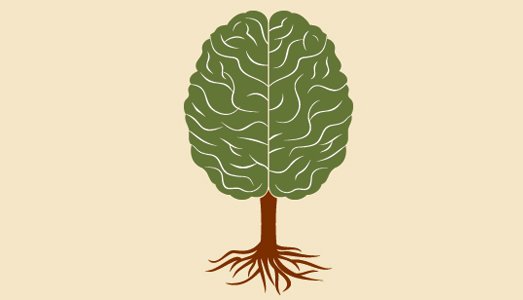
Struggling and Stellar Students Require a Growth Mindset
This fixed mindset concerning intelligence is problematic for both developing and advanced students because these misconceptions are alternately used to judge others or oneself, neither of which is helpful when anyone is experiencing challenge. Instead, teachers can cultivate in every student a growth mindset that grants measure and grace to oneself, as well as that extends a generosity of spirit to others.
Harsh criticism toward those who struggle academically is not only unkind, it overshadows the tangible benefits of trying, travailing, and tackling any task that is nowhere near easy—and these arduous endeavors vary from person to person and from subject to subject, including the arts and physical education.
As children age, school only gets more demanding, and subjects get more specialized. Even students who excelled with relative ease in regular classes may suddenly and without precedent find themselves scrambling to keep up when they enter accelerated, honors, or advanced placement classes or elite schools filled with new classmates who seem much more intelligent than they presumed themselves to be.
In fact, the most successful people intentionally place themselves in incrementally more difficult, daunting, or different endeavors in order to strengthen and stretch their own potential. For those who embrace challenge, plugging away and resilience are simply part of the program of self-improvement and success. They expect setbacks, struggles, and stumbles and dauntlessly push to overcome them.
Because all children will (and should) frequently find themselves in formidable or unfamiliar situations, where the tasks before them are at once complex, worthwhile, and personally meaningful, lessons in the advantages of growth mindset are crucial and transformative.

Engagement Creates Investment
There’s intrinsic motivation in any endeavor well done, especially if it’s also well loved. Student engagement directly affects achievement, particularly for students who currently lack the willpower to do what needs to be done—especially when they do not feel like doing it.
Therefore, ensure that your students frequently interact with curriculum, assignments, and projects in which they are deeply invested. Inspired by connection, choice, and creativity, even low-performing students will perceive their toil and tirelessness as thrill and triumph. This scholarly inspiration stimulates their innate desire to succeed in school—no matter how some may have heretofore hidden this yearning.
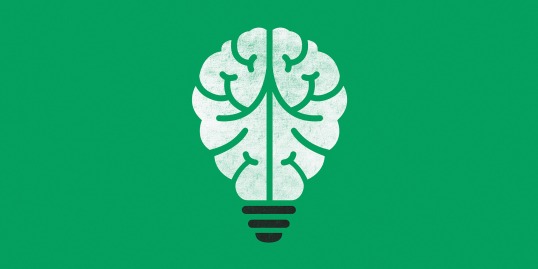
Intelligence = Attention, Effort, Time, and Thought
Emphasize to every student that acting intelligently usually entails extensive attention, effort, time, and thought. In fact, those who ardently observe, strategically strive, earnestly invest, and carefully contemplate are the same students who not only achieve academically but who thrive emotionally. Most often, innate intelligence had very little to do with it.
As has been noted by Carol Dweck, it’s important to also realize that effort alone is not enough. Students must be taught and given praise for using processes and action plans that change the mere act of trying hard into purposeful perseverance that pays off.

Intelligence = Patience, Persistence, and Practice
In one way, instant access to information, media, and “gratification” is doing a disservice to our youth, many of whom virtually do not know what patience is—they just know they don’t like it. Sorry, but one cannot always “fast forward to the good part,” especially when a teacher is trying to show their students that every bit of a discussion, text, lesson, or film is the good part and a vital piece of the whole!
As far as persistence, too many students liken commitment to folly. Dedicating oneself to something that may or may not materialize for quite some time unfortunately seems a fool’s errand to students transfixed by “instant and easy.”
If practice makes perfect, what does a woeful lack of routine and repetition make? Educators have long progressed beyond drill-and-kill, but students still need to see and embrace the benefits of preparation and purposeful iteration, as well as how that type of adherence directly serves them, both in the long and short run.
This part about students seeing patience, persistence, and practice in action cannot be overstated. All students must witness these positive, productive qualities in real time and over time. They should view firsthand what it takes, as well as how long it sometimes takes, to see results—whether or not in their own mind they currently think they are a hotshot or a hot mess of a student.
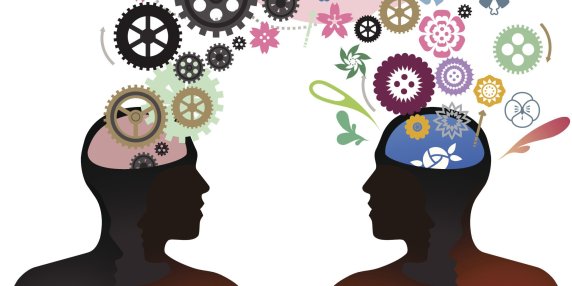
Intelligence = Conversation, Collaboration, and Cooperation
Class discussions are fruitful in modeling the distinct advantages of a growth mindset. Often it takes the germ of an idea from one student to spark a more thorough or profound answer from another. In fact, it may take several insights, opinions, and pieces of evidence for an entire class or a small collaborative group to arrive at a complete answer or compelling theory.
Explicitly point out to students that no one always has to go it alone or has every answer (and certainly not immediately). Also provide opportunities to prove that two or more heads in true collaboration are often better than one.
In order for students to become resourceful and independent, first equip them with a wealth of dependable strategies. Then create structured practice—both individual and collaborative—augmented by those trusty systems and scaffolds. This is the basis by which working intelligently replaces merely working hard.
Also reinforce how help and feedback are ever available and how accessing these supports is an ordinary aspect of intelligence. Cultivating the openness to accept and seek out advice and assistance is a hallmark of a growth mindset. Encourage your students to avail themselves of the resources offered so they develop the initiative and drive to advocate for themselves instead of silently waiting for someone to come to them.
Intentional effort, endurance, and assistance can be made familiar, fruitful, and fulfilling when combined with the reliability and reassurance of growth mindset.
Empower all of your students with these qualities that exemplify true intelligence!
***
In the Comments section below, please share your success stories and struggles with convincing students that intelligence takes perseverance and practice.
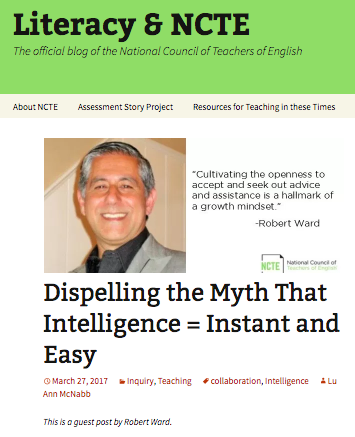
This article originally appeared on the NCTE blog.
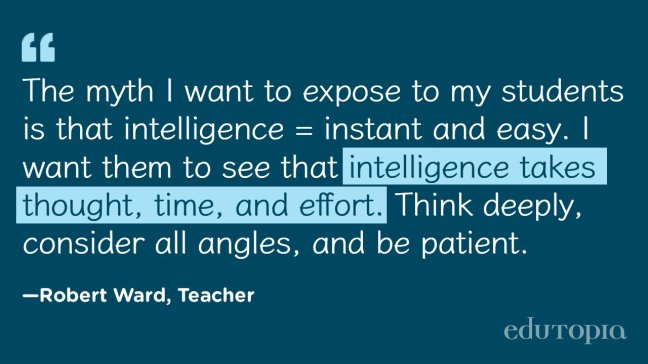
I was honored to have Edutopia post my quotation on Twitter and Facebook. The response was overwhelming and the comments were examples of true intelligence!

This article is also included in Robert Ward’s new book, Teaching the Benefit Mindset.
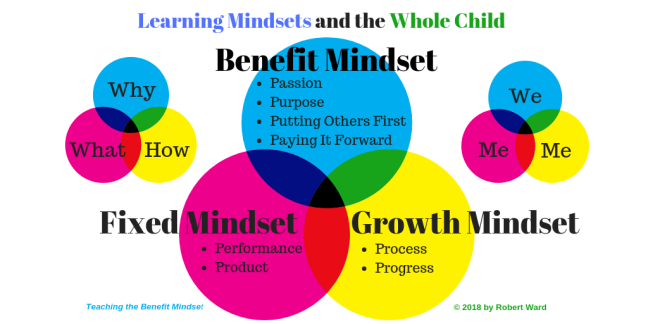

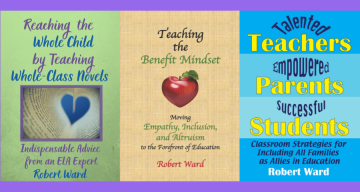

https://twitter.com/CoachNizol/status/846319344246296581
LikeLike
LikeLike
LikeLike
LikeLike
LikeLike
LikeLike
LikeLike
LikeLike
LikeLike
LikeLike
LikeLike
LikeLike
https://twitter.com/valerietilton/status/846881906369200129
LikeLike
LikeLike
LikeLike
LikeLike
LikeLike
LikeLike
LikeLike
LikeLike
LikeLike
LikeLike
LikeLike
LikeLike
LikeLike
https://twitter.com/moncada_profe/status/1119587485661712384
LikeLike
LikeLike
I have my students do a “turn and talk” about something they want to talk about at the start of the class or work week. Later in the class/week the do the same but retell their partner something they learned. They will remember when we get them talking.
LikeLiked by 1 person
LikeLike
The second word of the article is misspelled.
LikeLike
Startling. (And horrifying.) Thanks for bringing this to my attention!
LikeLike